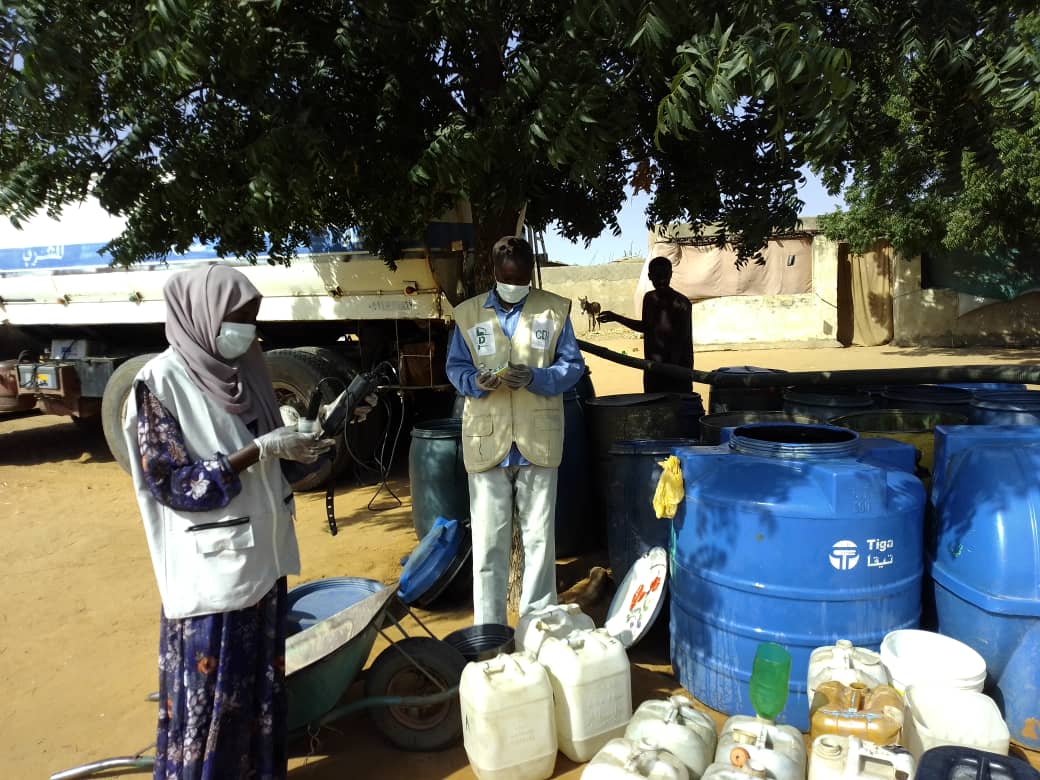Provide water chlorination/flocculation services with focus on water quality monitoring

In emergency situations, the quality and safety of water are as important as the quantity of water. The aim of Provide water chlorination/flocculation services with focus on water quality monitoring is to ensure that water meets WHO standard and to prevent water-related diseases. Between April and June 2025, with support from UNICEF and funding by ECHO, the Community Development Program trained 30 volunteers from shelters and residential neighborhoods in El Fasher on water quality and safety, focusing on water chlorination and measuring residual chlorine.
Monitoring water quality and safety in El Fasher included taking samples from water sources such as water stations (19 private water yard, 8 public water yard), 88 households, and water transportation means, as well as measuring free residual chlorine. Chlorine was also distributed to households, benefiting 5,000 recipients for a period of three months, with 1.67 grams provided to 19 private water yards and 5 public yards. The provision of chlorine helped supply clean water to 67,000 person of El Fasher, including displaced persons and the host community, despite the challenging security situation, high operational costs, and the dangers of movement to access sources. However, the community's need for safe and contaminant-free water drives us to exert extra effort to meet the increasing demand for monitoring water quality and safety, especially during emergencies.